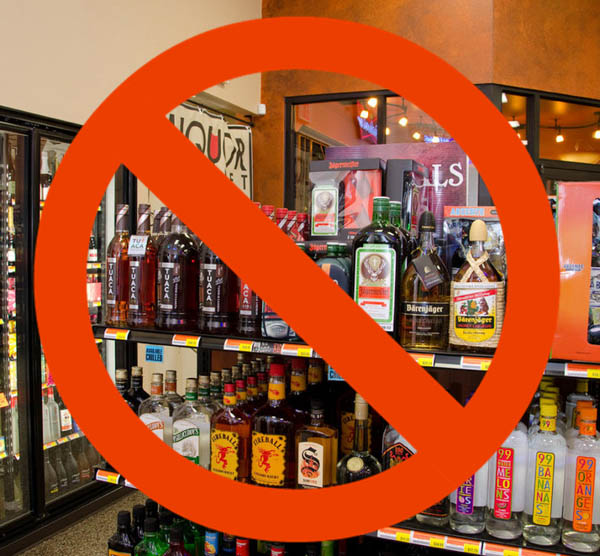Photo by: Will Gentry
Recent discussions concerning the change of Utah’s strict liquor laws have attracted political attention. With a majority of citizens claiming the Mormon faith, which believes consuming alcohol is a sin, legislators are having a difficult time getting new proposals passed.
One of the more famously strict laws in Utah states that the mixing and pouring of alcoholic drinks must be performed in back rooms or behind partitions. This is also known as the Zion Curtain, and it is one of the laws that legislators such as Rep. Kraig Powell are targeting.
Currently, Utah’s liquor laws do not permit stores or supermarkets to sell liquor; only restaurants, catering facilities, airport lounges and clubs approved by the state have that right. This differs from Oklahoma – where private retailers are permitted to sell and distribute alcohol with state permission.
In Utah, each region can only have a certain amount of restaurants legally distributing alcohol, and it is dependent upon the amount of people living in each area.
One point of agreement between Utah and Oklahoma laws is the practice of bringing alcoholic beverages intended for consumption into an establishment that is open to the public. In both states, this is prohibited and susceptible to a fine.
Many citizens of Utah adhering to the Mormon faith are not entirely supportive of this law change. Other bills have been proposed throughout the years, but have remained unsuccessful due to the religious beliefs of the citizens.
“Their laws are reflecting the population; that’s what they’re supposed to do,” Raymon Huston, professor of political science, said. “… I would love to see more legislators, even at the national level, vote along the lines of their constituents instead of themselves.”
Paris echoed Huston’s idea of a renewed commitment on the legislators’ part.
“His job as a legislator is to represent his citizens, and not necessarily further his own agenda or the agenda that he even sees as best,” senior Afton Paris said. “… The citizen’s vote is what should be counted rather than the opinions of the legislator.”
According to public response, the citizens themselves seem to be against the idea of loosening the laws on liquor. One of the main reasons for a push towards the new legislation is tourism.
“[They] have an NBA team and half their games are at home,” Huston said. “That means you have a large number of people coming in from out of out of state into their area and one of the No. 1 sellers of course is alcohol.”
Even though tourism may not be the most appealing argument, there is the question of obtaining a free market.
“Based on the principles of a free market, if there is a demand for a certain good there should be ability for companies to come in and take advantage of that demand by … providing their services,” Paris said.
The laws Utah has in place can be seen as a setback to the state in terms of economics. Taxes on alcohol, or “sin” taxes, make up large portion of revenue for other states that have different laws.
According to Huston, Utah is missing out on millions, possibly hundreds of millions, of dollars per year.
“Economically, yeah it does put Utah at a distinct disadvantage, but should everything be based on money?” Huston said. “… You’re missing out on huge revenue. The problem is, is it worth it? How much are your religious beliefs worth?”
While Utah’s laws may have a negative effect in terms of economic prosperity, the social aspects associated with these laws are another factor to consider.
“I would assume it decreases the amount of drunk driving, the amount of alcohol consumption, the amount of addiction probably present in the population,” Paris said. “There are definitely benefits on forced self-control.”
Because Utah’s citizens are predominately of the Mormon faith, morals can play a huge role.
“A lot of people don’t think you should mix morals and politics,” freshman Joshua Gage said. “But I think that in this scenario – [in the sense that] if you’ve been an alcoholic – it puts a bad connotation on it, which is good.”
Whether or not these laws will be put in place depends solely on the voting outcome.
“I think they’re trying too much,” Huston said. “They need to do a very small incremental adjustment. It’s like the idea of boiling a frog. Put him in cold water and then turn up the heat a little bit at a time; he’ll never notice what happened to him and he’ll end up dying happy. But if you try to drop him in hot water, he’ll jump out.”
Even if legislators are pushing too hard and too fast, then there is the question of what would happen if the new laws end up being put into action.
“They [citizens] definitely won’t like it, but I think it’s the change they’re going to have to deal with,” Gage said. “Especially how big alcohol is now, they’re going to have to adjust to it; and it’s unfortunate that they’re going to have to do that, but it’s just what it is.”















Be First to Comment